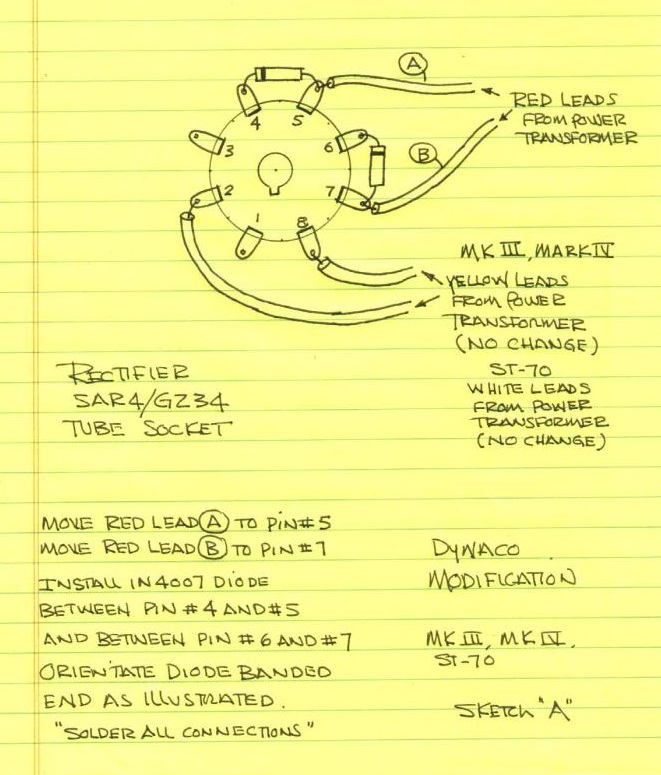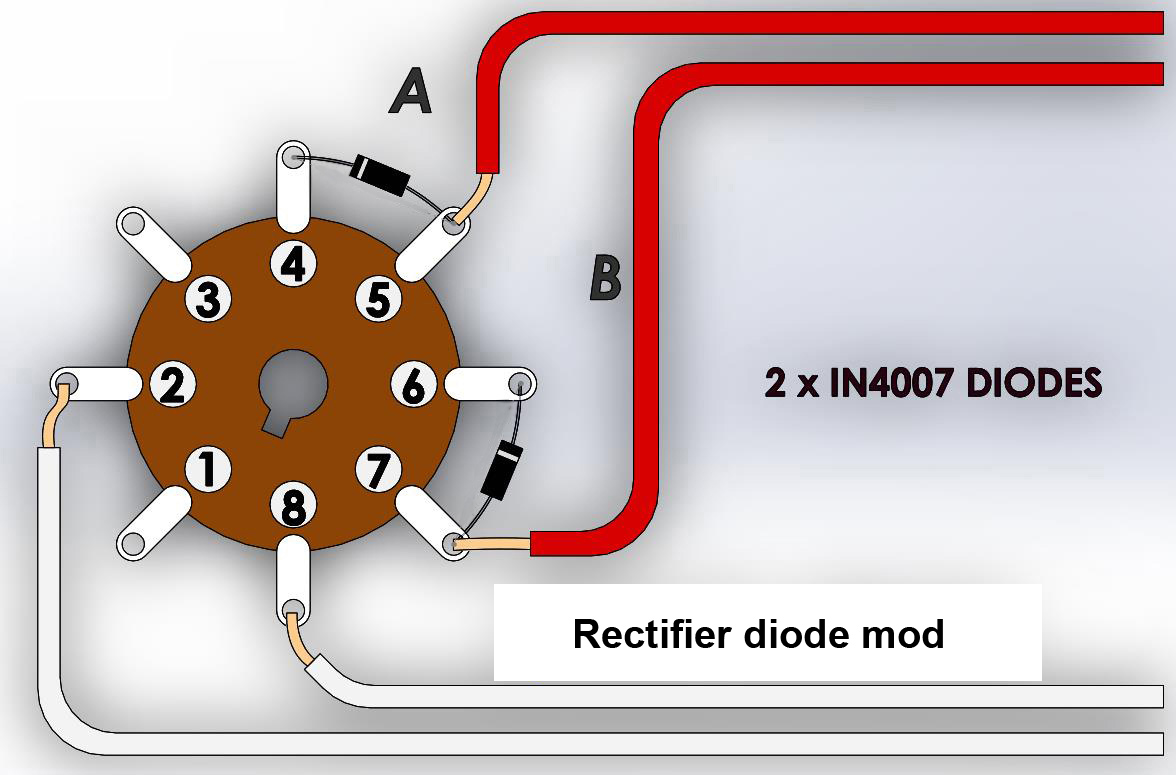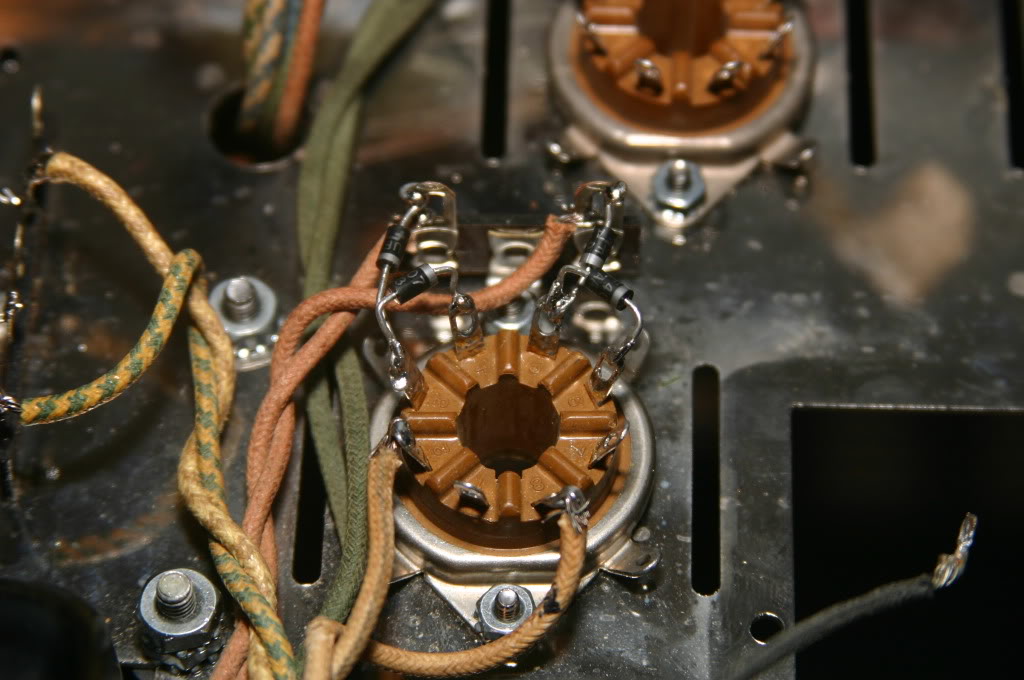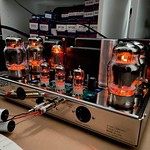this mod should be done to all tube amps using tube rectifiers, to reduce the chance of damaging the tube rectifier


Dedicated to the restoration and preservation of all original Dynaco tube audio equipment - Customer support for Tubes4hifi VTA tube amp and preamp kits and all Dynakitparts.com products

stevebro and S391 like this post

fedoragent likes this post
 More Diodes
More Diodes





Njrob likes this post
In high fidelity audio equipment I prefer SS rectification because it is much more efficient than tube rectifiers. The Weber WZ68 plug-in SS rectifier though has worked out great in the ST-120. The Weber's mild series resistance to mimic voltage sag of tube rectifiers isn't even noticed. Guitar amps are another story as the tube rectifier and associated voltage sag can be used as part of the feel of the amp at higher gain. And tube rectifiers have periodic replacement costs associated with them plus the vintage varieties are ridiculously expensive. Soft start is a must though for SS rectifiers whether a standby switch or something like the VTA relay board to hold off plate voltage while the cathodes heat up.Is a better solution a soft start SS or tube rectifier?
If you plan on using a tube rectifier then the diodes are good insurance against rectifier tube flash over on power failures. And if considering the VTA relay board then the diodes may not be needed. The relay will open on power failure so no return current path through the power transformer secondary windings.I'm in the process of building a ST 120 would this be a worth while modification?

Njrob likes this post